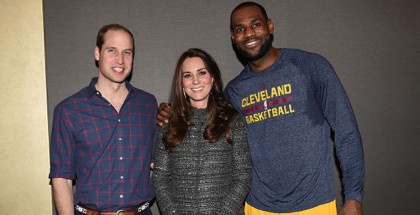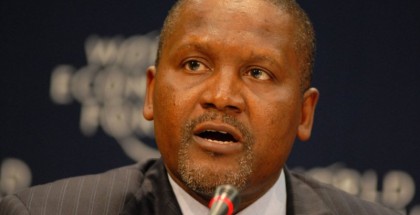CEOs with the highest pay
konknaijaboy | On 21, Jul 2013
Chief executives at the largest US companies were paid $5,000 an hour, on average, in 2012, making more in 11 hours than the typical family earned all year.
After a brief hiatus during the recession, richly paid CEOs are back at it, booking gargantuan pay hikes.
Exhibit A: The 200 highest-paid CEOs saw their pay go up 16% last year, to a median of $15 million.
And the average American? Not so much. Median household income went up a mere .25% to $52,971.
In short, assuming a 60-hour workweek and two weeks’ vacation, the typical CEO at a large company made more in 11 hours than the typical family made all year. The average CEO made $5,000 an hour, or 283 times the typical family’s earnings.
Lawrence Ellison of Oracle (ORCL) — a perennial heavyweight on the highest-paid CEO list — topped the chart by outdoing even himself. He netted a 24% pay hike to take $96 million, even though he was already worth tens of billions.
Leslie Moonves at CBS (CBS), David Zaslav at Discovery Communications (DISCA) and Robert Iger atWalt Disney (DIS) all placed among the highest paid, with colossal compensation of from $37 million to $60 million, according to Equilar, an independent executive pay compensation analysis company.
As usual, much of the pay came in the form of generous dollops of stock and options — often without any real performance hurdles, even though this kind of pay is supposed to serve as an incentive. “Boards are just throwing stock at CEOs, without thinking about the consequences,” says Eleanor Bloxham of the Corporate Governance Alliance, a CEO pay consultancy.
But does excessive pay CEO really matter? Yes, for several reasons. It’s often a red flag that board members are mere CEO lapdogs — not great news for investors who need boards to nudge top managers to perform for them. Second, excessive CEO pay can signal that a company has an “imperial CEO” and that it’s doing too little to groom its next leader, which makes for poor succession planning.
Big picture, there’s also the issue of whether widening pay gaps and the increasingly stratified class structure in the United States is eroding the historically egalitarian underpinnings of U.S. capitalism — and thus demoralizing the workforce.
We haven’t heard much from Occupy Wall Street lately, right? But with 16% pay hikes at the top while the typical American family is forced to eat a pay cut in real wages, after inflation, it’s a good bet that the sense of unfairness tapped by the Occupy protests still festers just below the surface.
Click through this slide show, published July 16, for a closer look at 10 CEOs with some of the nation’s largest pay packages. Included all seven chief executives with the richest compensation packages last year, as well as three others who are leaders in various pay categories. Each has a deal that’s worth noting.
Salesforce.com (CRM) CEO Marc Benioff’s compensation ranks him 32nd for pay. But he makes our top 10 list for another reason: He received more than any other chief executive last year in gains on stock options ($106.3 million, compared with a median of $2.3 million). These gains are excluded from Benioff’s annual pay numbers.
Benioff also got a 25% pay hike, most of which was in the form of an $18.9 million options grant. That seems like a lot, given that he already had a huge $1.8 billion stake (stock and options value) in the company.
But it’s tough to criticize the pay here too much, for two reasons. First, his pay package uses rigorous performance metrics that serve as good incentive, says Institutional Shareholder Services (ISS), which analyzes proxy filings for investors. And, next, it seems to be working. Benioff, who co-founded salesforce.com, has helped investors make a ton of money. At more than $42, the stock is up eightfold from $5 in 2005.
The next time you’re in a Starbucks, be sure to tip your barista well, even if you just paid an arm and a leg for the coffee. After all, that barista is making only $19,000 a year, or just less than $9 an hour, according to estimates by PayScale.
So where the heck do all your coffee dollars go?
A disturbingly large amount goes straight to the guy at the top, CEO Howard Schultz. Why is this troubling? Well, first, he’s already rich, since his stock and options in Starbucks (SBUX) are worth well over $1 billion.
Schultz received an 80% pay hike in 2012, which put his compensation for the year at $28.9 million. That ranks him 14th for CEO pay overall. We put him on our top 10 list because he got the highest deferred compensation (income deferred for tax reasons), of $172.6 million. Schultz’s take here stems from 1992 options he exercised in 1997.
Next, it makes little sense that Schultz still gets huge stock grants ($18 million last year) and options awards ($6.9 million), given his huge exposure to the stock already. He owns nearly 4% of the company’s stock. At the end of last year, his overall Starbucks stock and options were worth $1.28 billion. Do you really think that giving him more stock and options will incentivize him more? “It’s hardly the best use of company stock,” says Paul Hodgson, an executive pay expert with BHJ Partners, a corporate governance consulting firm.
Starbucks responds that his high pay is explained by “the unique value of his leadership to Starbucks,” which is a good point, in a way. When he returned as CEO in 2008, Starbucks stock was at around $18 per share. It’s now around $69.50.
- Bing: Coffee shop etiquette
Marissa Mayer took over as chief executive at Yahoo (YHOO), but she also earns another distinction: She was the highest paid female CEO last year. Mayer’s pay is a bit of an optical illusion, though. Most of her $36.6 million compensation reported for 2012 — $35 million — was an incentive stock award that vests over several years.
She had a relatively modest base salary of $455,000, compared with a median of $1.25 million, and very modest perks at $40,000, compared with a median of $310,000.
“While there may be some big paydays in the future, as those stock awards vest, especially if the stock price growth continues, I can’t see her topping this list again for a few years,” says Hodgson, of BHJ Partners.
As for shareholders, so far, so good. The stock was up 23% last year, which beat the median gain of 19% in the stocks of the top 200 paid CEOs.
- Bing: More on Marissa Mayer
Back in early June, just in time for the summer vacation season, Walt Disney (DIS) upped its theme park entrance fees by way more than inflation.
A one-day adult ticket to Disneyland went up 5.7% ,or $5, to $92. Kids’ tickets jumped 6%, or $5, to $87. Tickets for Orlando’s Walt Disney World went up by similar percentages, to $95 for adults and $89 for kids. Inflation overall is just 1.4%.
Where’s all that extra money going? Company CEO Robert Iger’s base salary rose a massive 25% to $2.5 million last year. But that was just the start. Iger also got a $16.5 million cash bonus (compared with a median of $3.4 million), a $9.5 million stock grant and a $7.75 million options grant. His total pay package of $37.1 million made him the seventh-highest-paid CEO last year, making about 700 times what the typical family — and his typical customer — makes.
If you’re miffed about the high ticket prices — and the enormous CEO salary they support — maybe you should consider theme park operator Six Flags Entertainment (SIX). Its day passes for adults are $65, and kids get in for $40.
Six Flags CEO James Reid-Anderson got a mere $12.1 million in the past two years, compared with Iger’s $73.7 million, including deferred compensation. We still love you, Mickey. But the magic in the Magic Kingdom is now about how rich it makes the boss.
Disney notes that shareholders have done well with Iger as CEO, which is true. As of July 1, the total return on Disney stock was 193% since he took the helm in 2005, the company says, compared with 54% for theStandard & Poor’s 500 Index ($INX).
- Bing: More on Robert Iger
The hospital company HCA (HCA) last year paid out special dividends to shareholders. That helped CEO Richard Bracken pocket $22 million, given his extensive holdings in company stock. That pushed his total pay to $38.6 million.
Shareholders can’t complain about pay that was well more than twice the median, since sales were up 13%, beating the median of 5% growth for the 200 companies with the highest-paid CEOs. And total return for the stock was 66%.
More than 70% of its hospitals rank among the best in the nation, according to the Joint Commission, and industry group. And overall, HCA gets a favorable review for pay practices, at ISS.
For HCA employees, though, it might be a different story. Bracken’s elevated pay offers a case study in the widening pay gap in the United States. His 2012 pay was 682 times the annual pay of $56,600 for a registered nurse at HCA, as estimated by PayScale, an online compensation data provider. And it was 1,237 times the PayScale’s estimate of pay for a medical billing officer, at $31,200. Both comparisons are far greater than the overall ratio of median CEO pay ($15 million) to household income ($52,971), which is 283.
- Bing: Is Obamacare working?
Most Americans saw pay increases of 0.25% to 1.9% last year depending on how you measure it, according to Mark Zandi of Moody’s Analytics, But Level 3 Communications (LVLT) CEO James Crowe did far better. He got a 261% increase taking his pay to $40.7 million. His pay included a hefty $23.8 million in stock awards, an outsized $13.2 million in options and a $2 million cash bonus.
Crowe netted all that pay thanks to a neat little trick. That hefty stock and options grant was meant as incentive pay for three years, according to a employment agreement signed in March 2012. But a clause in the agreement stated that all of it would vest immediately if he left the job early. He did just that in April 2013. You guessed it: He got three years’ worth of “performance pay” without having to stick around to perform. Not bad, right?
Investors have been peeved about excessive CEO pay and the lack of solid incentives in equity awards for a few years, as you can tell by the low support in annual votes on CEO pay here. That accelerated vesting of stock and options for Crowe after his early departure won’t do much to solve this problem.
At least Level 3 shareholders did OK last year. Sales at the company advanced 47%, and the stock was up 36%.
One reason CEO pay continues to spiral out of control is what pay analysts jokingly call “the Lake Woebegone effect.” Discovery Communications (DISCA) could do a TV special on this dynamic, because CEO David Zaslav offers a prime example.
In Lake Wobegon, all the kids are above average. In CEO pay land, boards comply with CEO demands for pay that’s higher than the average for their peers. This means that CEO pay, by definition, naturally ratchets higher every year, points out Vineeta Anand, chief research analyst in the AFL-CIO Office of Investment.
At Discovery Communications, for example, the board compensation committee aims for CEO pay at the 75th percentile of peer pay, well above the average (which would be at the 50th percentile).
This Lake Wobegon mentality helped net Zaslav $49.9 million last year, including a $25.3 million stock award, a $15.8 million option award and $8.7 million in cash compensation. And it’s one reason the company gets low grades for corporate governance at ISS.
Plus, there’s a sneaky twist: Instead of choosing real peers for the CEO pay benchmark, ISS points out that Discovery goes with companies that are more than twice as big, as measured by sales, such as Dish Network (DISH), CBS (CBS) and Time Warner Cable (TWC). It’s Lake Wobegon on steroids.
Shareholders did well last year, though; Discovery stock was up 55%. But the super-high CEO pay could spell trouble down the road. Zaslav’s pay was 17 times the average pay for top execs at Discovery, compared with a more usual multiple of three or four, calculates ISS. Such a huge gap can suggest that a company is not grooming the next CEO as a hire from inside — often the best kind.
- Bing: More on David Zaslav
Media and entertainment companies often rank on the highest-paid CEO lists. And last year, CBS topped the ranks in this elite group. CBS (CBS) CEO Leslie Moonves got there by pulling down the highest cash pay ($32.4 million) of all CEOs, well ahead of the median of $5.3 million.
Most of that was a cash bonus of $27.5 million — the largest cash bonus for any CEO in 2012 — compared with a median of $3.4 million. The rest of his cash reward was a $3.5 million base salary, almost triple the median of $1.25 million, and the second-largest salary in the top 200. Moonves also got $1.4 million in perks, mostly for personal use of the corporate jet and security.
This was the third year in a row that Moonves got a $27.5 million bonus. His huge pay for three years running — more than four times bigger than the median pay at peer companies — raises red flags at ISS about CBS’ corporate governance.
Shareholders can’t complain about performance, though. Total return for CBS shareholders was 42% last year. CBS’ net income growth, at 17%, far surpassed the median of 5%. Notably, its stock performance pushed the value of Moonves’ stock and options to $243.4 million by the end of last year.
Why do media and entertainment company CEOs get so much? They’re trying to keep up with the talent and entertainment stars they help manage, says Hodgson, of BHJ Partners. At CBS, that includes talk show host Julie Chen — who happens to be Moonves’ wife.
- Bing: CBS’ fall schedule
Activision Blizzard (ATVI) CEO Robert Kotick landed a $55.9 million stock grant last year — compared with median of $6.8 million, according to Equilar.
In fairness to Kotick, who has spent decades at the company behind popular games such as “World of Warcraft” and “Call of Duty,” that $56 million stock grant was incentive pay spread out over five years.
A few caveats suggest that Kotick shouldn’t get off the hook so easily, though.
First, his performance hurdles are so weak there’s “a pay-for-performance disconnect” here, says ISS. Kotick also stands to pocket a generous golden parachute of $45 million in any takeover. Activision Blizzard lacks an independent board, says ISS, which may explain the generous pay.
Next, that multiyear stock grant works out to $11 million a year. This, plus the rest of his 2012 pay, around $9 million, takes his total to $20 million. This still ranks him among the top 40 CEOs for pay. Kotick got a base salary of $2 million, compared with a median of $1.25 million, and cash bonus of $6.95 million, compared with a median of $3.4 million.
Activision Blizzard disputes ISS’ conclusion that performance metrics in Kotick’s pay package are weak. “The majority of his equity vests over a five-year period only if challenging performance metrics are met, and the bulk of his cash compensation is at risk as well,” says a company spokesperson. And the company has outperformed under his leadership. Since he became CEO in 1991, earnings have grown at more than 20% a year annualized, and the stock has advanced 12% annualized, including reinvested dividends, which beats the S&P 500 by three percentage points, says the spokesperson.
- Bing: More on Robert Kotick
Oracle (ORCL) founder and CEO Larry Ellison got the biggest options grant last year, at $90.7 million, dwarfing the median of $2.2 million. That pushed his pay to more than $96 million, which is more than six times the median pay for top 200 highest-paid CEOs at companies with revenue over $1 billion, according to Equilar.
Sure, Ellison deserves credit — and wealth — for founding Oracle in 1977 and leading the company to huge success since. But his high pay this year has compensation analysts asking “How much money does one guy need?” After all, he owns 23.5% of Oracle stock, and the value of his stock and options in Oracle at the end of last year was an enormous $29.6 billion, says Equilar.
Options are supposed to align management with shareholders and retain executives. But given Ellison’s huge stake here, it’s hard to argue that he’d leave or that he lacks incentives. “It is an utter waste of shareholder resources,” says Hodgson, of BHJ Partners.
Another odd twist: The board makes shareholders spend $1.5 million a year on his home security. Seriously?
Oracle declined to comment. In fairness to Ellison, Oracle stock has vastly outperformed the market for decades. And Ellison has pledged to give most of his wealth to charity after he moves on to the great corner office in the sky.
At the time of publication, Michael Brush did not own or control the shares of any companies mentioned in this column. Brush suggested buying shares of Disney at $36.25 in November 2011, to subscribers of Brush up on Stocks, his investment newsletter.
Source: MSN MONEY


























